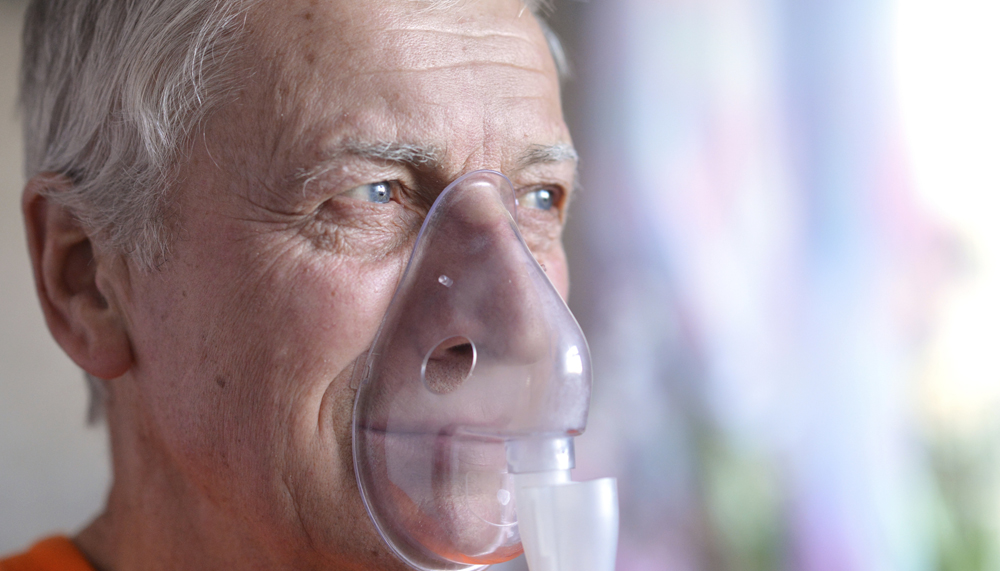Research has found that depression and anxiety adversely affect prognosis for COPD patients, and even lead to increased mortality.
The connection between chronic obstructive pulmonary disease and depression could point to better health outcomes.
Research has suggested that given the adverse relationship between COPD and depression and anxiety, screening simultaneously for both disorders could be of great advantage to patients.
The study by Dr Evan Atlantis and colleagues has found that patients diagnosed with COPD and depression or anxiety consistently had worse outcomes including exacerbation and increased mortality.
The researchers’ report in Chest, the online journal of the American College of Chest Physicians, said COPD patients with comorbid depression had an 83 per cent higher risk of mortality. Data suggested that chronic bronchitis alone may increase the risk of anxiety as depression or anxiety worsens COPD prognosis, possibly interfering with effective COPD management.
COPD patients had also been found to have a much higher chance of being diagnosed with depression, as 40 per cent of COPD patients had depression and anxiety compared to the general population’s figure of less than 10 per cent.
Many people across Australia suffer with COPD, especially those who are in the later stage of life.
“The Burden of Obstructive Lung Disease study estimates that the prevalence of COPD, defined according to the Global Initiative for Chronic Obstructive Lung Disease criteria as stage 2 or higher, was 7.5 per cent among Australian people aged 40 years or older in 2006–10,” said Atlantis, senior research fellow from the University of Western Sydney.
“The prevalence of COPD was highest among people aged 75 years or older,” he said, adding that treatments should be prioritised according to COPD guidelines.
Depression among COPD patients can be addressed through multidisciplinary care plans for COPD.
He said screening for both diseases at the same time can become a common practice by increasing awareness of the best available evidence through publications.
“Screening for these disease combinations would identify patients who have both COPD and depression/ anxiety, and provide clinicians the opportunity to treat both problems at the same time – potentially delivering a better overall health outcome,” he said.
He said depression leads COPD patients to disregard pulmonary rehabilitation and cut on the exercise, resulting in lost productivity.
Currently about 10 per cent of the world’s population aged 40 years and older have COPD, he said, and COPD rates increase with age, independently of smoking history.
“So, an aging world population will increase the rates of COPD and undoubtedly cause significant stress on healthcare systems in high-income countries, and may threaten economic growth in developing countries,” he warned.
Beyondblue believes in raising awareness of both the general public and health professionals on the link between these two great health challenges.
“First and foremost, health professionals should understand that people with COPD are significantly more likely to experience depression and anxiety,” said CEO Kate Carnell.
Carnell said Beyondblue has recently produced a document that they are sending out to hospitals and GPs, to alert doctors to the issues surrounding people who have had a major health problem, and expounding the importance of taking note of other health issues such as mental health when diagnosing patients.
She said doctors need to appropriately treat chronic conditions and how likely the patients of such conditions are to experience depression.
“What unfortunately happens with conditions like COPD is doctors focus on COPD but don’t look for other issues in the patient’s life. So if the issue is, say heart attack or heart disease, they treat heart disease, and don’t actually ask the appropriate question look at the patient’s mental health issues.”
A doctor, she indicated, needs to ask how the patients are feeling as well as how their mental health is faring. Patients, on the other hand, need to talk to their GPs about how they are feeling.
Carnell believes it is important to speak to your GP if you are “feeling sad having trouble sleeping or organising their lives, starting to becoming or feeling disconnected with friends and family, not going out, not doing the things that used to make them happy”.
She advised COPD patients who are experiencing depression and anxiety to get around, continue as normal as life is, and continue to stay in touch with their family.
“It’s hard anyway with COPD if the person has depression,” she explained, adding that the situation can make the patients withdraw from society.
Those with COPD and depression may have lifestyle problems, “ … not getting the exercise that they should do, not eating or sleeping properly, which makes their general health and COPD worse”. Carnell says treating the depression early is imperative, in order to avoid a downward cycle.
She also emphasises the importance of nurses in general practice, who she believes are well-trained in this area. Often patients see doctors busily going around, thinking they don’t have time to listen, but patients shouldn’t think that way. Talking to the general practice nurse or to other health professionals such as social workers or occupational therapists may be of great help.
Do you have an idea for a story?Email [email protected]
 Aged Care Insite Australia's number one aged care news source
Aged Care Insite Australia's number one aged care news source

